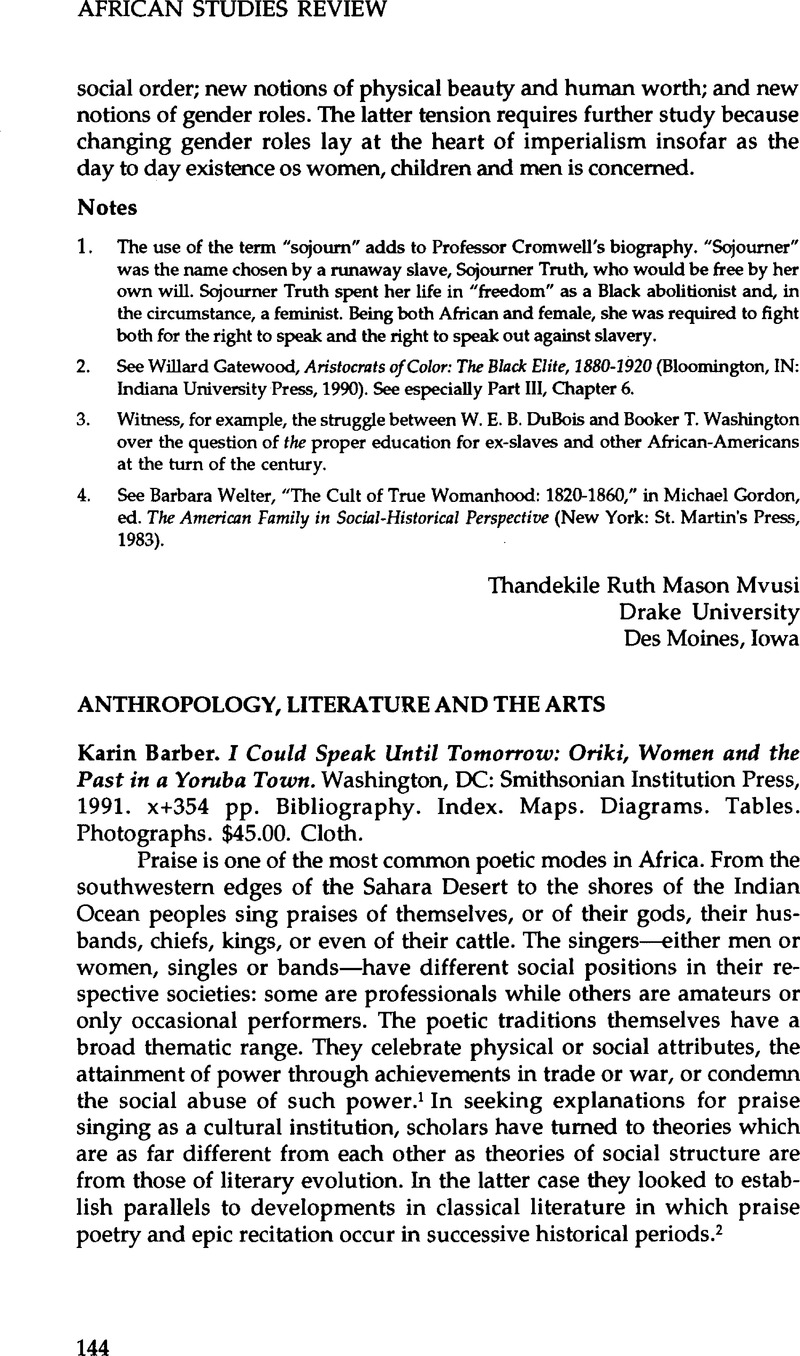No CrossRef data available.
Published online by Cambridge University Press: 23 May 2014

1. For a survey of praise poetry see Finnegan, R., Oral Literature in Africa (Oxford: The Clarendon Press, 1970), pp. 111–46Google Scholar.
2. See for example Nagy, G., “Ancient Greek Epic and Praise Poetry: Some Typological Considerations,” in Foley, J., ed., Oral Tradition in Literature: Interpretation in Context (Columbia, University of Missouri Press, 1986), pp. 89–102 Google Scholar; Opland, J., “The Structure of Xhosa Eulogy and the Relation of Eulogy to Epic,” in Hainsworth, J. B. and Hatto, A. T., eds., Traditions of Heroic and Epic Poetry II (London: The Modern Humanities Research Association, 1989), pp. 121–44Google Scholar.
3. See for example Cope, T., ed., Izibongo: Zulu Praise Poems (Oxford: The Clarendon Press, 1968), p. 26 Google Scholar.
4. See Gummere, F. B., The Popular Ballad (1907; New York, Dover, 1959), p. 91 Google Scholar.
5. Compare with the notion of the fragmentation of spoken language proposed by Chafe, W. L. in “Integration and Involvement in Speaking, Writing, and Oral Literature,” in Tannen, D., ed., Spoken and Written Language: Exploring Orality and Literacy. Advances in Discourse Processes, Vol. 9 (Norwood, NJ: Ablex, 1982), pp. 35–53 Google Scholar.
6. Parry, Milman, “The Traditional Epithet in Homer,” in Parry, A., ed., The Making of Homeric Verse: The Collected Papers of Milman Parry. (Oxford: The Clarendon Press, 1971), p. 13 Google Scholar. See also, Lord, A., The Singer of Tales (Cambridge, MA: Harvard University Press, 1960), pp. 30–67 Google Scholar.
7. See Foley, J. M., Oral-Formulaic Theory and Research: An Introduction and Annotated Bibliography (New York: Garland, 1985)Google Scholar.
8. Briggs, C. L., Competence in Performance: The Creativity of Tradition in Mexicano Verbal Art (Philadelphia: University of Pennsylvania Press, 1988)Google Scholar.
9. Bird, Charles, “Poetry in the Mande: Its Form and Meaning,” Poetics 5 (1976), pp.89–100 CrossRefGoogle Scholar.
10. Isaiah Berlin has employed the opposition found in a fragment of the Greek poet Archilochus to establish a dichotomy between two types of accumulation of knowledge. See his essay “The Hedgehog and the Fox,” in Russian Thinkers (New York: Viking Press, 1978), pp. 22–81 Google ScholarPubMed.
11. Smith, M. G., “The Social Functions and Meaning of Hausa Praise-Singing,” Africa 27 (1957) pp. 26–43 CrossRefGoogle Scholar.